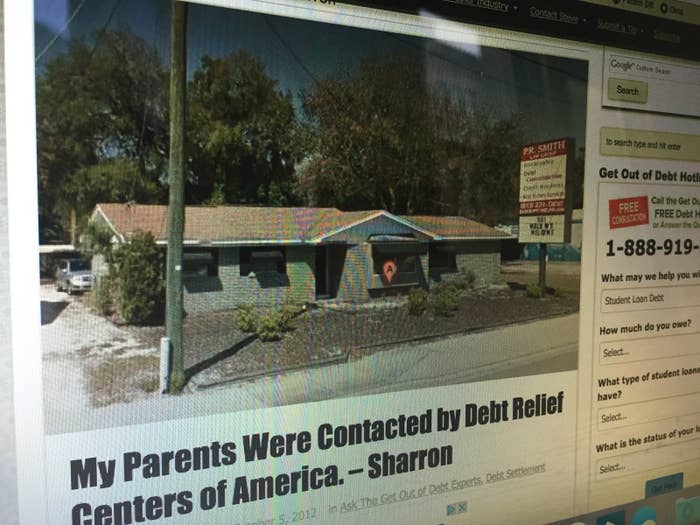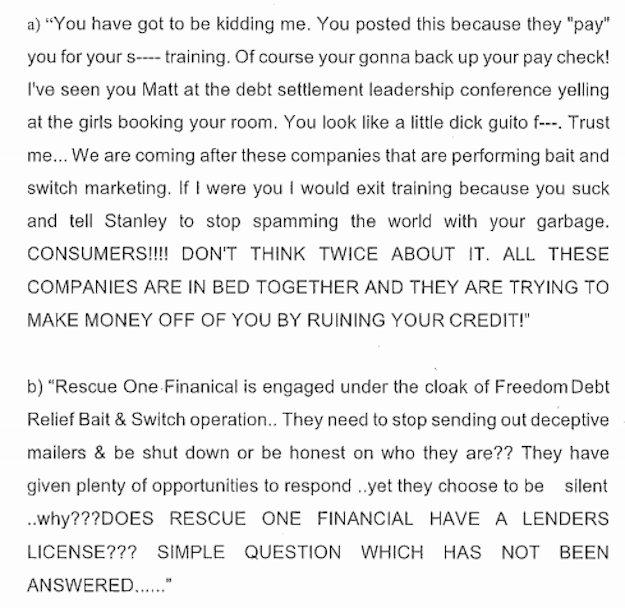
Someone has found a novel way to black out negative comments about businesses online — file a lawsuit against a person who doesn't exist.
The scheme relies on Google's compliance with court orders to remove pages with defamatory content from its search results, said Eugene Volokh, a professor at UCLA School of Law. There is no reason for Google to question a state court order which has found a piece of content defamatory, he said.
Volokh told BuzzFeed News that he discovered 25 defamation cases against online commenters, all sharing similar structures and boilerplate legal language, and all filed without an attorney in state courts. In each case, the defendant — or at least someone claiming to be them — quickly agreed they had made a defamatory comment, allowing the court to issue a takedown order.
But in at least five of these cases, the person being sued didn't even exist. In some cases, the plaintiff didn't even know a suit was filed in their name, and countersued for damages to their reputation. But by obtaining a court document saying a comment is defamatory, the protagonists were able to get Google and other internet companies to scrub online criticism.

Steve Rhode, a 57-year-old consumer rights blogger based in Wake Forest, North Carolina, has found himself entangled in one of these fabricated defamation lawsuits.
Rhode spent 12 years in the debt relief business until he left the industry to write about it full time on his blog GetOutofDebt.org, he told BuzzFeed News.
It wasn't until August that he learned his site was not only named in a lawsuit, but that two of his blog posts had been removed from Google's search index due to a court order issued in Rhode Island.
This is where the story becomes a bit twisted. Back in March, Bradley Smith, the CEO and co-founder of Rescue One Financial, sued an alleged commenter on Rhode's blog named Deborah Garcia, who supposedly lives in Rhode Island.
The complaint alleges the blog posts, published in 2012 and 2015, contained comments by Garcia under the names "Debtsettlementisalie" and "Joni." The comments were false and defamatory, Smith said.

The same day the lawsuit was filed, Garcia admitted to the court that her comments were defamatory and said that she was unable to remove them herself. Smith then asked the court for an order to have Google remove the content from its index. The court agreed.
But a woman named Deborah Garcia doesn't exist at the address listed in the case, and the real Bradley Smith says he never filed a lawsuit against her, according to an affidavit filed on Tuesday by Paul Levy, an attorney with the non-profit organization Public Citizen, who is representing Rhode.
Smith's company did, however, contract with a brand management business that says it "uses legal maneuvers" that have been "proven to be effective for permanently removing defamatory search results," according to the contract included in the affidavit.
The company, RIR 1984 LLC, was contracted for $6,000 a month over nine months to act on behalf of Rescue One Financial to remove negative search results using their "proprietary de-indexing program." But nowhere in the contract did it say it would file lawsuits against alleged commenters on behalf of the company or its co-founders. When reached by phone, the company declined to comment.
Levy has asked the court to lift the order against Rhode's blog post, which would put it back in Google's search results. He has asked to begin a legal process that would reveal who filed the lawsuit.
"Whoever did this does not want to be before the court," Levy told BuzzFeed News. "We may need more time to bring these people to justice, but our intent is to bring them to justice."
"Usually it doesn’t make sense to sue fake defendants because you can't get real money out of a fake defendant and you can’t get compliance out of a court order," said Volokh, the law professor. "This is an unusual situation in which the purpose of the order appears to be not to get a defendant to do something but to get a third party to do something."
Google, which is not named as a party in any of the suits, did not respond to requests for comment from BuzzFeed News. In its Transparency Report, the company explains that it relies "on courts to decide if a statement is defamatory according to local law."
Volokh said if Google removes the content from its search list, "it would be as if it doesn't even exist."
After spending 12 years in the debt relief industry, Rhode is more irritated by the lengths to which this company allegedly went to remove negative comments from appearing online, he said.
"The debt industry has some interesting characters," he said. "Nothing surprises me anymore. It was clear from the moment I read the complaint that none of it made any sense. In the first 15 minutes, I realized it was total garbage."
Rhode prides himself on reporting accurate and truthful information, and said he has a policy of including a correction at the top of his posts if something is inaccurate. But he said this company, or individual, who filed the lawsuit in Smith's instead "pulled a fast one on the court system."
"In this particular case I just happened to be caught in a clever scheme that actually winds up hurting consumers because in the end the information that was removed form the search engine was not incorrect, it was factual," he said adding that in this case "there’s more than one victim."
"There's me, the court, the company name, and there’s the consumers," he said.
